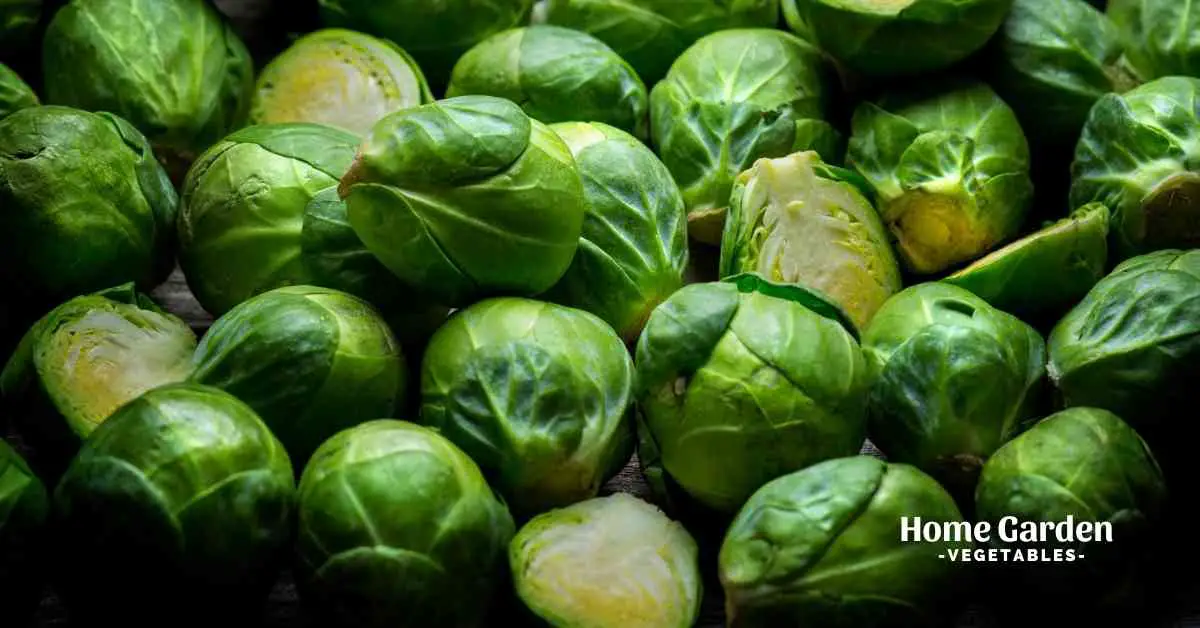Are you looking to grow your own healthy and delicious greens at home? Look no further than growing Brussel sprouts! These small, nutrient-packed powerhouses are packed with vitamins, minerals, and antioxidants that provide a variety of health benefits.
Brussel sprouts are known for their unique flavor, which has a nutty, earthy taste that is loved by many. These leafy greens grow best in cool weather, making them a great choice for fall and winter gardens. They are also relatively easy to grow, with a growing season of about 90 to 120 days from planting to harvest.
Reader Poll: What online courses would interest you?
So, if you’re ready to add some healthy and delicious greens to your diet, why not give Brussel sprouts a try? In this article, we’ll delve into the ins and outs of growing and caring for Brussel sprouts, from selecting the right seeds to harvesting and storing your crops. With the help of expert advice, you’ll be well on your way to growing a successful crop in no time!
Understanding the Basics of Brussel Sprouts
Brussel sprouts are a cool-season vegetable that belongs to the Brassica family. They grow best in temperatures between 40°F and 65°F and can be planted in the spring or fall. Brussel sprouts grow on tall, upright stalks and are typically ready to harvest after 90-120 days. They are a slow-growing crop that requires plenty of sun, water, and nutrients to thrive.
Choosing the Right Location for Your Brussel Sprouts
Brussel sprouts grow best in full sun, with at least six hours of direct sunlight each day. They also prefer well-drained soil with a pH between 6.0 and 7.5. Before planting, it’s important to amend the soil with organic matter, such as compost or well-rotted manure, to improve soil structure and fertility.
Subscribe to our newsletter!
Preparing the Soil for Planting
To prepare the soil for planting, first remove any weeds or debris from the area. Then, till the soil to a depth of at least 12 inches. After tilling, add 2-3 inches of organic matter, such as compost or well-rotted manure, and mix it into the soil. Finally, rake the soil to create a smooth, level surface.
Planting Your Brussel Sprouts
Brussel sprouts are usually started from seeds that can be sown directly in the ground or started indoors and later transplanted. If starting from seed, plant the seeds about an inch deep and 2-3 inches apart. Cover the seeds with soil and water them well. When the seedlings are about 4 inches tall, thin them to about 18-24 inches apart.
Providing Adequate Water and Nutrients
Brussel sprouts need consistent moisture to grow properly. Water your plants deeply once or twice a week, depending on the weather. Overwatering can lead to root rot, so be sure to let the soil dry out slightly between waterings. In addition to water, Brussel sprouts also need fertilizer to thrive. Fertilize your plants once a month with a balanced, water-soluble fertilizer, such as 10-10-10.
Dealing with Pests and Diseases
Like all vegetables, Brussel sprouts are susceptible to pests and diseases. Common pests include aphids, cutworms, and caterpillars. To prevent pest damage, keep the area around your plants free of debris and weeds, and consider using row covers or insecticide sprays. Diseases that can affect Brussel sprouts include black rot and clubroot. To prevent disease, rotate your crops every year and choose disease-resistant varieties.
Harvesting Your Brussel Sprouts
Brussel sprouts are ready to harvest when the individual sprouts are about 1 inch in diameter. To harvest, simply cut the sprouts from the stalk, taking care not to damage the remaining sprouts. Brussel sprouts can be stored in the refrigerator for several weeks, or they can be frozen for longer storage.
Conclusion
In conclusion, growing brussel sprouts can be a rewarding and delicious experience for any gardener or homesteader. With the right soil, water, and light conditions, you can grow healthy and bountiful crops of these nutrient-rich vegetables. Whether you are planting them in your backyard or in containers on your balcony, brussel sprouts are a great choice for anyone looking to add some green to their diet. By following the tips outlined in this article, you can grow your own brussel sprouts and enjoy their delicious taste and numerous health benefits. So why not give it a try today and start your own brussel sprouts garden!

